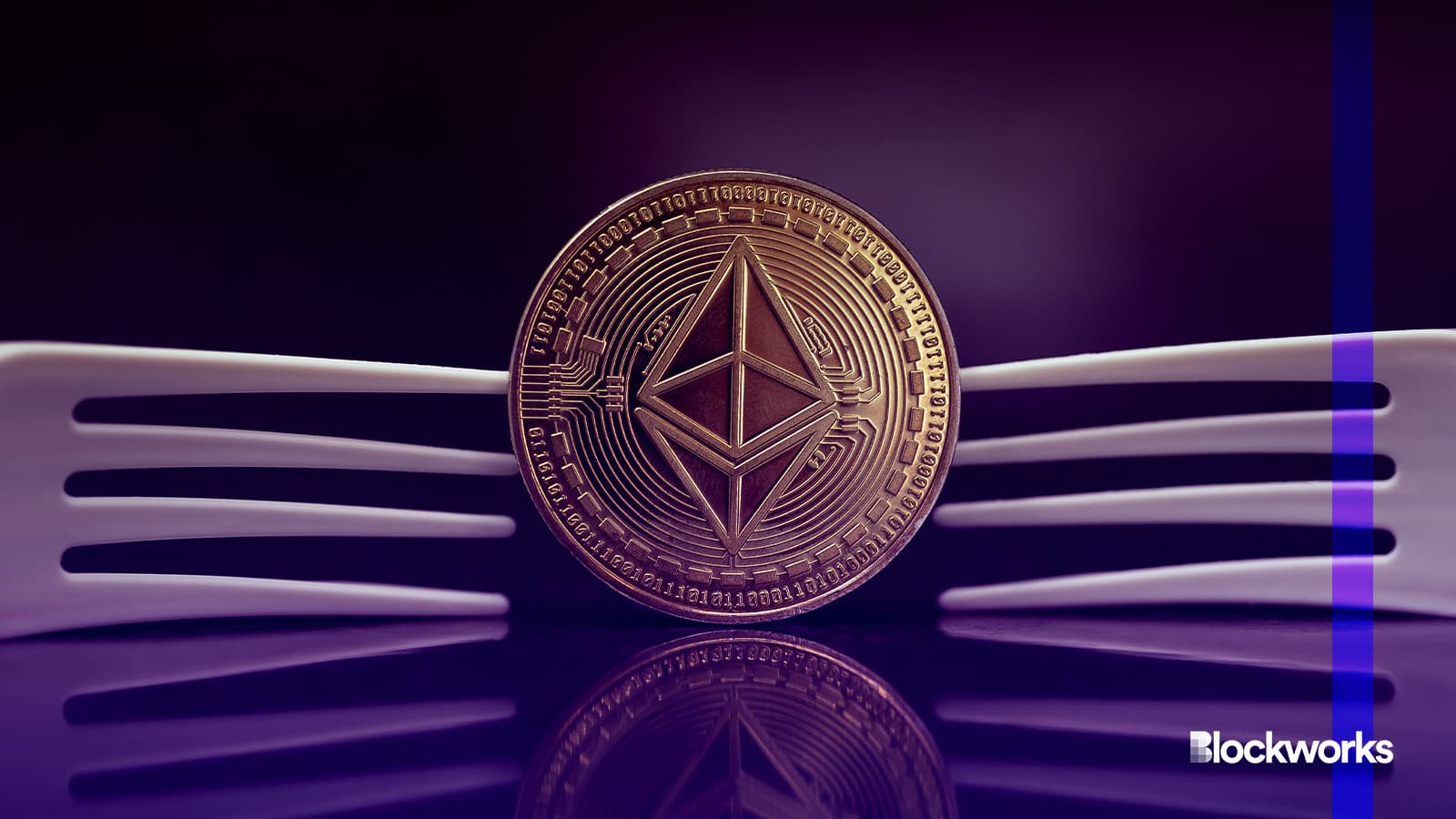Core devs rule out Dencun fork this year
Ethereum core developers are working through issues with the next suite of upgrades, featuring EIP-4844

DIAMOND VISUALS/Shutterstock modified by Blockworks
Ethereum client developers confirmed on Thursday that the anticipated Dencun upgrade will not be implemented in a network hard fork before the end of 2023.
Already last month, when the new Holešky testnet was successfully launched behind schedule, the consensus was that putting the upgrade through its paces by the time December holidays rolled around was unlikely.
When an optimistic scenario was put forward on today’s All Core Developers call, the consensus was evidently with pseudonymous Prysm developer Potuz, who commented, “there is no way we are forking mainnet in 2023.”
He pointed to consistent consensus issues arising on the 10 developer networks (devnets) that have been spun up so far to test the upgrade over the past few months, adding that “not a single one went well.”
Read more: Devnet, testnet, mainnet: Ethereum’s next upgrade progresses — slowly
Ethereum clients are divided into two main camps, one for the execution layer and the other the consensus layer, with the distinction reflected in the name of the upgrade — consensus teams use cities where Ethereum’s major conference, Devcon, has been held (e.g. Cancun), while execution client developers opt for star names (e.g. Deneb) — hence “Dencun.”
In contrast to the consensus teams, execution layer client teams reported being in good shape for the upcoming testnets.
“We are in a pretty good place, a lot of things are also on Master now,” said Geth developer known as Lightclient, referring to the Go Ethereum project’s digital workspace where the code, files, and revision history are stored.
Devnet 10 was launched this week, with plans for the execution clients to transition to a larger test on the Goerli testnet. But Prysm’s Potuz is not on board with that idea.
“I’m definitely not comfortable at all having a full client fork on Goerli,” he said. “I see very large and deep changes still being pushed in the branch,” he added regarding Prysm, the software currently runs 45% of the consensus layer clients.
A smaller Devnet 11 is planned, but it now appears the move to testnets will be put off until after Ethereum’s Devconnect developer conference, which will be held in Istanbul in mid-November.
Celebrating the KZG ceremony
The Dencun upgrade required a bit of fancy cryptography to ensure the Ethereum scaling improvement, known as Proto-Danksharding, a key feature, remains secure.
The KZG Ceremony involved multiple participants, each concocting a secret and performing a computation to blend it with preceding contributions. This process results in the formation of a “structured reference string” (SRS), which is crucial for the KZG Commitments cryptographic scheme, and integral to Proto-Danksharding.
The final outcome of this chain of contributions is then put into the upgrade. The whole setup remains secure so long as there is at least one honest participant in the ceremony. After months of soliciting contributions, a total of 141,416 makes that all but certain.
Carl Beekhuizen, who coordinated the ceremony for the Ethereum Foundation, invited participants to verify that their contributions are, in fact, included, by visiting ceremony.ethereum.org.
There, one can input a contributing wallet address, and receive a commemorative POAP NFT.
Get the news in your inbox. Explore Blockworks newsletters:
- The Breakdown: Decoding crypto and the markets. Daily.
- 0xResearch: Alpha in your inbox. Think like an analyst.






